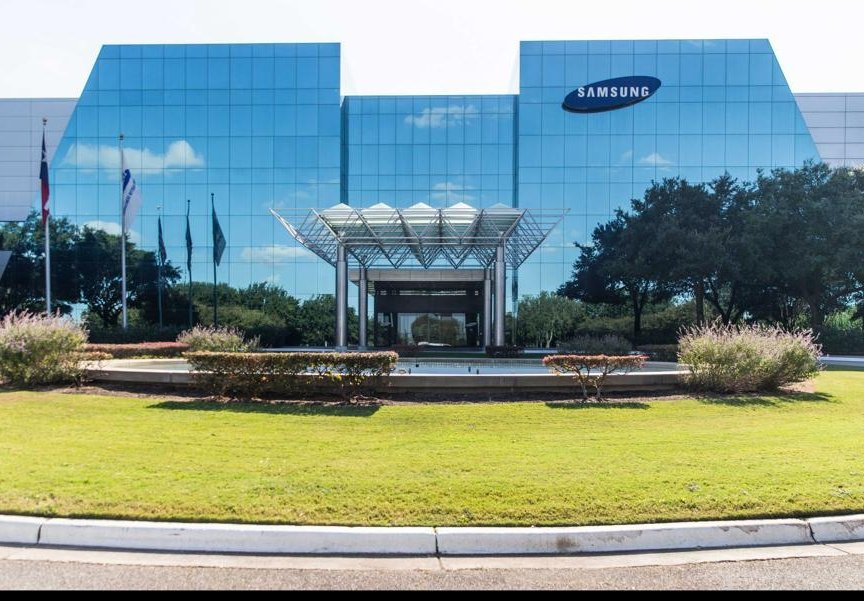
South Korean chipmakers Samsung Electronics and SK hynix have been boosting investment in the US to secure federal subsidies and get ahead in the intensifying competition in the advanced chip packaging and artificial intelligence chip sectors.
Samsung Electronics, the world's top memory chipmaker that also runs chip design and foundry businesses, is reportedly planning to increase its investment in its semiconductor fabrication plant currently under construction in Taylor, Texas.
According to The Wall Street Journal, the chip giant is expected to double its spending for the Taylor fab, adding about $27 billion to the original $17 billion plan to invest a total of $44 billion.
Citing people familiar with the matter, the WSJ said the additional investment would cover a new chipmaking factory and a facility for advanced packaging, and research and development.
At the envisioned fab, Samsung is expected to mass-produce its cutting-edge high-bandwidth memory chips which have become a crucial component in speeding up the operation of artificial intelligence services.
Regarding the report, Samsung said nothing has been decided yet, and that they are still negotiating with the US Commerce Department.
"We do expect the US will announce the subsidy grant in the first half of this year. But negotiations with the US government are still underway, and there is nothing we can confirm for now," a Samsung official said.
Samsung is also reportedly planning to announce an additional investment plan on April 15, when the US Commerce Department will announce the subsidy grant. Industry sources also predict that, if US President Joe Biden visits Samsung's Taylor fab for the occasion, Samsung Electronics Chairman Lee Jae-yong will also fly to the US to meet the president.
The report came as the US Commerce Department is reviewing the company's investment to decide on its subsidy, which falls under the CHIPS Act announced in 2022.
With the goal of strengthening its domestic semiconductor industry and attracting the world's top chipmakers to produce chips on its soil, the US government announced the act and has allocated $39 billion in direct grants, as well as loans and loan guarantees worth $75 billion.
The Commerce Department is expected to announce the subsidy for Samsung soon, and if Samsung is increasing its investment as reported, the subsidy is also likely to increase, according to industry sources.
For its original $17 billion investment plan for its Taylor fab, the US government was reportedly preparing to offer the company a subsidy of about $6 billion.
SK hynix, the world's second-largest memory chipmaker after Samsung, has also recently announced a $3.87 billion investment to build an advanced chip packaging plant and a research facility in West Lafayette, Indiana.
With nearby access to Purdue University, the company said it seeks to increase cooperation with the school that has one of the US’ biggest semiconductor and microelectronics engineering programs.
On SK's investment plan, the Indiana Economic Development Corporation has promised special benefits and subsidies of up to $685.7 million, and the local community, including the West Lafayette and Purdue Research Foundation is also expected to offer additional incentives.
The state-led subsidy aside, the chip giant also applied for a subsidy to the US Commerce Department and is expected to receive some benefits.
Industry observers say that government subsidies would become a critical factor in deciding the future growth of these chipmakers.
Intel, a US-based chipmaker, promised to invest over $100 billion in the US over five years to expand the US chipmaking capacity and is expected to receive a subsidy of up to $8.5 billion.
TSMC, the world's top foundry producing 92 percent of the advanced chips in the world, is expected to receive more than $5 billion in grants for its US chip plant, which it is spending $40 billion to build.


![[KH Explains] No more 'Michael' at Kakao Games](http://res.heraldm.com/phpwas/restmb_idxmake.php?idx=645&simg=/content/image/2024/04/28/20240428050183_0.jpg&u=20240428180321)


